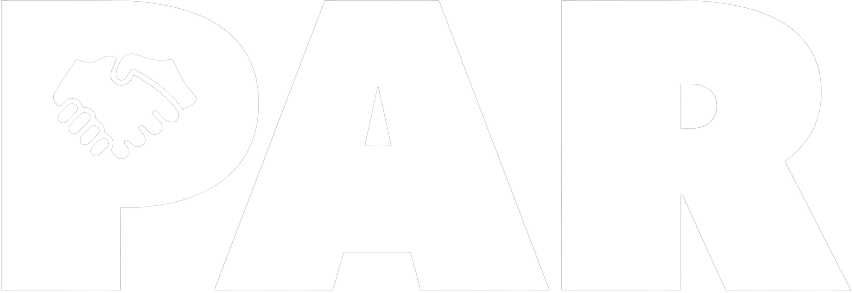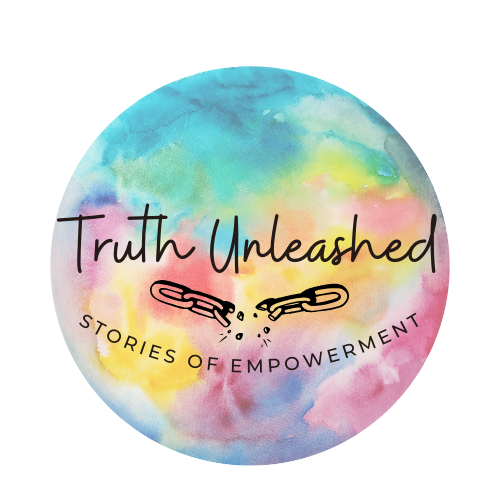Training
PAR serves as a technical assistance agency. If you are looking for opportunities for professional development, technical assistance, grassroot advocacy or board development – check out the trainings below and book a time for a customized consultation.
- Audience: SUD Professionals, Legislators, Government Agencies, Other NGO’s
- Time: 3-5 Hours*
- Objectives:
- What is the ROSC model
- Factors that affect a person’s recovery
- Identify first steps to implement the ROSC model
- Summary: Provide TA and adapt training material to support organizations, businesses, and public policy measures that support recovery through all stages of the continuum and in all sectors.
- Audience: Anyone
- Time: 2 Hours
- Objectives:
- Using data and lived experience to shape & inform training material & policies
- Understand the Power of Personal Narrative
- Lean into Empowering Language to Strengthen Your Message
- How to incorporate material at your Organization to build a culture of empowerment
- Summary: “Truth Unleashed: Stories of Empowerment” is a transformative training program designed to guide individuals through the art of sharing their personal narratives of recovery from substance use disorder. This unique training places a special emphasis on fostering a supportive and non-stigmatizing environment, empowering participants to articulate their journeys from a standpoint of strength and resilience. Participants in “Truth Unleashed” will learn the power of language in shaping perceptions and breaking down societal stigmas associated with substance use disorder. The program is crafted to help individuals express their stories authentically, promoting self-empowerment and inspiring others through narratives that highlight triumph over adversity.
- Audience: Anyone at any stage of employment, recovery, and sector
- Time: 1 hr
- Objectives:
- Research & Prep: Using appropriate language and messaging to identify your issue/topic and who you need to meet with
- Using Messaging with different Audiences: How to set it up and showing up prepared
- How to use language to confront stigma with meaningful conversations
- Summary: This training aims to challenge stigmatizing words and labels that have plagued our system throughout history. There are several variations to the training which provide a different lens and implementation. Whether from a public policy perspective or individual who uses this language to empower recovery and elevate the conversation.
- Audience: Professionals, executives, lobbyists, Elected officials
- Time: 8 hr
- Objectives:
- Research & Prep: Using appropriate language and messaging to identify your issue/topic and who you need to meet with
- Media & Setting Up Meetings: How to set it up and showing up prepared
- Implementation of Policy & Train the Trainer: Establish internal policies for your organization, learn best practices for training the trainer opportunities in your communities, and prepare for media engagements. Discuss language for the creation of anti-stigma campaigns in a variety of settings
- Summary: This training aims to challenge stigmatizing words and labels that have plagued our system throughout history. This comprehensive training is for executive-level professionals looking to engage in complex problem-solving and anti-stigma campaigns. Individuals will be able to confront societal challenges of language and barriers, be equipped and confident to challenge stereotypes, and provide insight to meaningful responses to change public policy. Whether from a public policy perspective or corporate lens, you will be able to empower recovery and elevate the conversation.
- Audience: Professionals & Advocates
- Time: 1.5 hr
- Objectives:
- Research & Prep: Using appropriate language and messaging to identify your issue/topic and who you need to meet with
- Media & Setting Up Meetings: How to set it up and showing up prepared
- Advocacy 101: How to leverage storytelling, research, and groups to affect change at the local, state, and federal levels
- Summary: This training aims to challenge stigmatizing words and labels that have plagued our system throughout history. There are several variations to the training which provide a different lens and implementation. Whether from a public policy perspective or an individual who uses this language to empower recovery and elevate the conversation.
- Audience: Families or persons with loved ones who are looking for alternatives to get assistance
- Time: 1.5 – 2 hours
- Objectives:
- What is SUD and how to recognize it
- Origins of Casey’s Law
- What is Casey’s Law?
- Where to start and how to use Casey’s Law
- Summary: Casey’s Law is a legal proceeding which asks a court for involuntary treatment for addiction. It has become evident that judges and attorneys across the state are so unfamiliar with the law that it’s not being used correctly and in many cases not at all.
- Audience: Anyone who wishes to register people to vote
- Time: 45 min – 1 hour
- Summary: PAR has been working with a coalition for the last few years to restore voting rights to persons involved in the justice system. Chances are high that we may see a constitutional amendment in the coming years. PAR is working a great deal to educate the public to show them why this is needed.
- Audience: Anyone interested in learning how to talk to policy makers about recovery-related legislation
- Time: 1 hr
- Objectives:
- Research & Prep
- Identify your issue/topic
- Who do you need to meet with?
- Setting Up Meetings
- How to set up meetings
- Showing up prepared
- Leave Behinds/One-Pagers
- What information do you want them to have?
- What will make the most impact?
- Research & Prep
- Summary: Discusses how to support and speak about policy measures that are meaningful for the recovery community. This is a basic “Nuts and Bolts of Advocacy” of grassroots advocacy.
- Audience: Anyone
- Time: 1.5 Hours
- Objectives:
- Understanding discrimination against people with substance use disorder
- Review of the federal and state laws around substance use disorder
- Identify strategies to build an advocacy coalition through partnerships and shared policy agendas
- Connecting to additional resources on harm reduction care models, language trainings, and educational materials
- Summary: PAR has now taken the lead in the “Know Your Rights” training originally conducted by the Legal Action Center.
- Audience: Advocates, Officials, Administrators
- Time: TBD (Ongoing mentorship)
- Objectives:
- 1:1 mentorship
- Ongoing support to guide you through the process of scheduling meetings with legislators, putting together a program that sets the stage for recovery conversations
- Best practices for inviting elected officials and how to create buy-in
- Summary: Are you looking to host a Recovery Advocacy Day in your community? PAR has a recipe for success to help you and your state host a RAD at your state capital.
- RAD PARtners
- Audience: Anyone
- Time: 1 hr
- Objectives:
- The Approach: Intro, mission, vision & activities
- Structure: How do you say what you want
- Leave Behinds: What information do you want them to have
- Summary: Train/host community members on how to host town hall meetings and invite stakeholders and decision makers to discussions.
- Audience: Anyone who is interested in becoming a volunteer distributor
- Time: 1 hr
- Objectives:
- Current Overdose Statistics and KY Law
- Overdose Risk Factors
- Overdose Prevention
- Signs/Symptoms of an Overdose
- What is Narcan® (naloxone) and how does it work?
- Responding to an Overdose
- Additional Resources
- Volunteer Distributor Training
- Volunteer Distributor Process
- Necessary Paperwork/Reporting
- Summary: We will discuss Kentucky’s statutes around Narcan access and how to properly administer Narcan in the event of a suspected overdose. We also have Narcan available for community members as well as a process to get a refill if it is used or expires.
- Audience: Peers, Clinical Professionals, Outreach Workers/Care Navigators
- Time: 1.5 hrs
- Objectives:
- Learn what a Recovery Community Organization is and its role in the recovery process
- Understand how to identify different types of support systems and how you can integrate them into the recovery experience
- Learn the intersection of recovery process, recovery community, and upward mobility in the social determinants of health
- Summary: As a peer, our job is to help connect the people we support with community resources. However, it isn’t just the community resources that our people need. It’s the COMMUNITY! In this session, we will discuss how to leverage the resources available to support individuals you serve on the ground to make a stronger community that will enable and foster a person’s recovery experience.
Please inquire for more information


